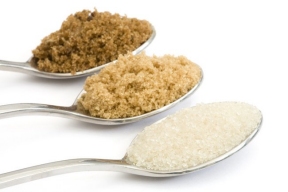

Here’s some news that shows eating desserts might not be so sweet. Results from an animal study published in Cancer Research found that common table sugar, or sucrose, may increase the risk of both breast and lung cancer later in life, Fox News reports. For the study, scientists at the University of Texas MD Anderson Cancer Center fed one group of mice a diet with sugary starches in amounts found in the typical Western diet. Researchers placed another group of rodents on a starch-controlled, low-sugar diet.
Findings showed that, at six months of age, 30 percent of mice on the starch-controlled diet grew measurable tumors. Scientists also noted that around 60 percent of mice on the sugary starches diet developed breast tumors. What’s more, researchers found that the mice on a sugar-enriched diet showed an increased risk of the cancer spreading to their lungs when compared with mice on the starch-controlled, low-sugar regimen. In addition, these results stayed constant regardless of the type of sugar the mice consumed, said researchers, who tested both sucrose- and fructose-rich diets.
In a press release about the study, Peiying Yang, PhD, an assistant professor of palliative rehabilitation and integrative medicine at MD Anderson, said this was due, in part, to mice on the sugar-rich diet showing the increased expression of a specific gene and a related fatty acid connected with the growth of cancerous tumors. While previous research suggested inflammatory links between sugar and breast cancer, experts said this study is the first that directly relates the sweet stuff to mammary gland tumor development. Americans eat more than 100 pounds of sugar each year per person. Researchers suggested that moderating sugar consumption is critical to health.










